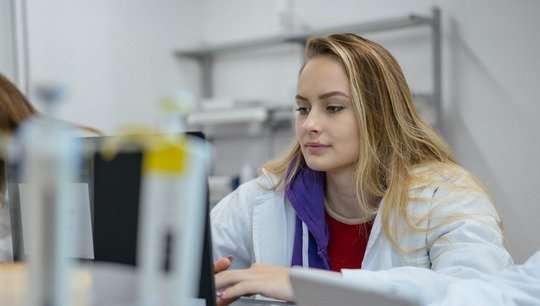The program has been developed by the students and employees of the Institute of Fundamental Education, Ural Federal University. Credit: Stepan Likhachev
Three-dimensional visualization based on computer tomography imaging provides more thorough preparation for the diagnosis of lung diseases. The technique has now been used to perform 25 transbronchial biopsies, and the accuracy of the procedure has increased from 53 percent to 88 percent. The results of the research have been published in the European Respiratory Journal.
Transbronchial biopsy is a minimally invasive procedure performed with the help of an endoscope inserted in the patient's airway. After the instrument has reached the appropriate site, small pliers extend to collect a sample of the affected tissue for further study. To determine the approximate position of the instrument in the airway, the endoscope is equipped with a video camera. However, the problem is that lesions can be located in the lungs, outside of the respiratory tract.
"The stage at which doctor uses the pliers is carried out almost blindly—only two-dimensional images of computed tomography are available, so the specialist must create a three-dimensional picture in his head, taking into account the individual features of the patient's anatomy, to locate the lesion," the authors write.
The researchers plan to create a similar tool for surgeons performing operations on the thorax, and web-service for using programs through the browser from any computer connected to the internet. The project for further research won a competition for youth innovation projects by the Russian Foundation for the Promotion of Innovation.
More information: Alexander Bazhenov et al. Technology of choosing a place of lung biopsy for disseminated lung interstitial lesions on the base of 3D-modeling, Diffuse Parenchymal Lung Disease (2017). DOI: 10.1183/1393003.congress-2017.PA2965
Journal information: European Respiratory Journal
Provided by Ural Federal University





















